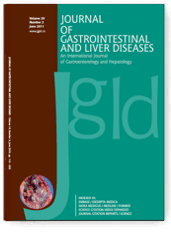Celiac.com 07/24/2009 - Celiac disease is a common disorder affecting more than one percent of the population in the Western world. The condition is often assumed to affect children and young adults, and traditional celiac disease research has focused on the development of the disease in in those populations, and on the basic mechanisms at play over the lifetime of the disease.
However, researchers recently showed a high number of both diagnosed and undetected celiac disease cases among elderly people. Currently, scientists know very little about the appearance of celiac disease in elderly people.
Celiac.com Sponsor (A12):
A team of researchers based in Finland recently set out to examine the increasing prevalence and high incidence of celiac disease among the elderly. The research team was made up of Anitta Vilppula, Katri Kaukinen, Liisa Luostarinen, Ilkka Krekelä, Heikki Patrikainen, Raisa Valve, Markku Mäki and Pekka Collin.
The team evaluated the prevalence of celiac disease in people over 55 years of age, and assessed the incidence of biopsy-proven celiac disease (CDb) and celiac disease including seropositive subjects for anti-tissue transglutaminase antibodies (CDb+s).
The team based their study on celiac disease prevalence figures in 2815 randomly selected subjects who had undergone a clinical examination and serologic screening for celiac disease in 2002.
A second screening in the same population was carried out in 2005, comprising now 2216 individuals. The team confirmed positive tissue transglutaminase antibodies results with small bowel biopsy.
Over a three year period, the prevalence of CDb increased from 2.13 to 2.34%, and that of CDb+s from 2.45 to 2.70%.
Five new cases emerged from five previously seronegative patients; two showed minor abdominal symptoms and three were asymptomatic. Celiac disease incidence in 2002–2005 was 0.23%, for an annual incidence of 0.08%.
It's unclear whether the number of undetected cases in the elderly is due to diagnostic delay, or to the development of celiac disease at a more advanced age, or both.
In closing, elderly people showed higher rates of celiac disease, but with subtle symptoms. Repeated screening detected five biopsy-proven cases in three years, indicating that the disorder may arise late, even among the elderly. The researchers are therefor recommending that doctors treating elderly patients employ an increased alertness as to the possible presence of celiac disease.
BMC Gastroenterology 2009, 9:49








Recommended Comments